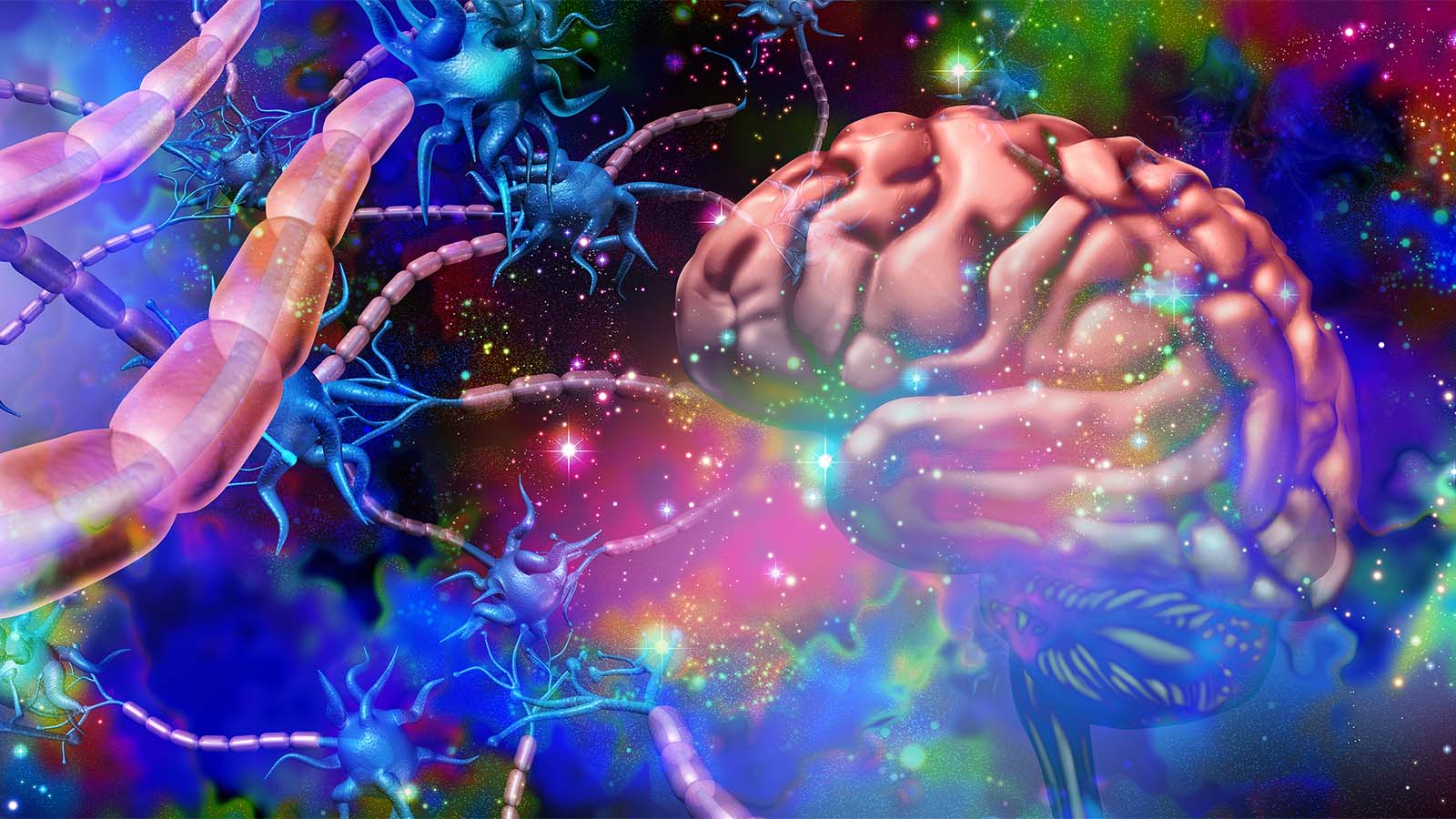
Neural circuits lie at the heart of how our brains function. These intricate networks of interconnected neurons allow for the relay of electrical signals, enabling us to perceive sensory information, control our movements, and process thoughts and emotions. Understanding neural circuits is crucial in deciphering the complexities of the brain and unraveling the mysteries of neurological disorders.
In this article, we will delve into the fascinating world of neural circuits and explore 9 captivating facts that highlight their importance and incredible capabilities. From the fundamental principles of neuronal communication to the role of plasticity in shaping our brain’s connections, get ready to venture into the intricate web that governs our brain’s functions.
Key Takeaways:
- Neural circuits are like the brain’s superhighways, controlling our movements, senses, and thoughts. They can change and adapt, but disruptions can lead to serious disorders.
- Neurons in neural circuits act like messengers, passing information through synapses. Understanding these circuits is crucial for treating brain-related conditions like Alzheimer’s and depression.
Neural Circuits are the Building Blocks of the Nervous System
Neural circuits are intricate networks of interconnected neurons that enable communication and information processing in the brain and spinal cord.
Neurons are the Fundamental Units of Neural Circuits
Neurons are specialized cells that transmit electrical and chemical signals within neural circuits. They play a crucial role in processing and transmitting information.
Neural Circuits Determine Behavior and Cognitive Functions
Neural circuits are responsible for controlling various behaviors and cognitive functions such as memory, learning, perception, and motor control.
Neural Circuits Display Plasticity
Neural circuits have the remarkable ability to modify their structure and function in response to experiences, learning, and environmental changes. This neural plasticity is crucial for adaptation and development.
Sensory Neural Circuits Process External Stimuli
Specific sensory neural circuits receive and process information from the external world. They allow us to perceive and interpret sensory stimuli such as sight, sound, taste, touch, and smell.
Motor Neural Circuits Control Movement
Motor neural circuits coordinate and regulate voluntary and involuntary movements. These circuits ensure the precise control of muscles and body movements.
Neural Circuits Can Form Feedback Loops
Neural circuits often form feedback loops, with signals being sent back to earlier stages of the circuit. This enables refinement, adjustment, and error correction in the processing of information.
Neurons in Neural Circuits Communicate through Synapses
Neurons within neural circuits communicate with each other through synapses, specialized junctions where electrical and chemical signals are transmitted between cells.
Disruptions in Neural Circuits Can Lead to Disorders
Malfunctions or disruptions in neural circuits can lead to neurological and psychiatric disorders such as Alzheimer’s disease, Parkinson’s disease, epilepsy, and depression.
Explore the intricate world of neural circuits and uncover the mysteries of the brain. Understanding the complexities of neural circuits is crucial for advancing our knowledge of neuroscience and developing treatments for neurological disorders.
So, there you have it – the 9 captivating facts about neural circuits! These intricate networks of neurons play a fundamental role in our brain’s functioning, controlling our behavior, cognition, and sensory perception. The plasticity of neural circuits allows us to learn, adapt, and respond to our environment. From processing sensory information to coordinating precise movements, neural circuits shape our entire experience of the world.
Remember, neural circuits are like the intricate highways of information in our brains, allowing us to navigate through the complexities of life. So next time you ponder the wonders of the brain, don’t forget to appreciate the remarkable neural circuits at work!
Conclusion
Neural circuits are truly fascinating entities that play a crucial role in our understanding of brain function and behavior. These intricate networks of interconnected neurons enable the transmission of signals and information within the brain, ultimately shaping our thoughts, emotions, and actions. From their complex structure to their ability to adapt and rewire, neural circuits hold the key to unlocking the secrets of the brain.Studying neural circuits allows us to delve deeper into neurological disorders and gain valuable insights into potential therapeutic interventions. By understanding how these circuits are formed, how they communicate, and how they can be modulated, scientists can work towards developing novel treatments for conditions such as Alzheimer’s disease, Parkinson’s disease, and depression.As our knowledge of neural circuits continues to expand, so does our understanding of the intricate workings of the human brain. These captivating facts about neural circuits provide a glimpse into the astonishing complexity and power of our most vital organ.
FAQs
Q: What exactly is a neural circuit?
A: A neural circuit is a network of interconnected neurons that work together to process and transmit electrical signals within the brain and nervous system.
Q: How do neural circuits form?
A: Neural circuits form through a process called synaptogenesis, where connections, known as synapses, are established between individual neurons, allowing for communication and information processing.
Q: Can neural circuits change and rewire?
A: Yes, neural circuits have the remarkable ability to change and rewire in a process known as synaptic plasticity. This allows for learning, memory formation, and adaptation to new experiences.
Q: What role do neural circuits play in behavior?
A: Neural circuits are essential for controlling and coordinating behavior. They provide communication pathways that enable the brain to send and receive signals, allowing us to perceive the world, make decisions, and initiate actions.
Q: Do neural circuits play a role in neurological disorders?
A: Yes, disruptions in neural circuits have been implicated in various neurological disorders such as epilepsy, autism, and schizophrenia. Understanding these circuit dysfunctions can lead to improved diagnosis and treatment options.
Q: How do scientists study and map neural circuits?
A: Scientists use a variety of techniques, including imaging methods, genetic labeling, and electrophysiological recordings, to study and map neural circuits. These techniques help identify specific connections and understand the functional properties of individual neurons within a circuit.
Q: Can neural circuits be targeted for therapeutic interventions?
A: Yes, researchers are actively exploring ways to modulate neural circuits for therapeutic purposes. Techniques such as deep brain stimulation and optogenetics are being investigated as potential treatments for neurological and psychiatric disorders.
Q: Are neural circuits unique to humans?
A: No, neural circuits exist in all animals with a nervous system. While there are variations in complexity and organization, the fundamental principles of neural circuitry are conserved across species.
Q: Why are neural circuits considered captivating?
A: Neural circuits are captivating because they hold the key to understanding how the brain functions at a fundamental level. Exploring the intricacies of these circuits helps us unravel the mysteries of cognition, behavior, and consciousness.
Neural circuits captivate scientists and curious minds alike. From their intricate connections to their role in shaping our thoughts and actions, these fascinating networks hold countless secrets waiting to be unveiled. But why stop here? Keep exploring the wonders of neuroscience with our articles on how neural circuits influence feeding behavior and the astounding facts about neurobiology. Each piece offers a unique perspective on the complex world inside our brains. So, let your curiosity guide you and continue this exciting journey of discovery!
Was this page helpful?
Our commitment to delivering trustworthy and engaging content is at the heart of what we do. Each fact on our site is contributed by real users like you, bringing a wealth of diverse insights and information. To ensure the highest standards of accuracy and reliability, our dedicated editors meticulously review each submission. This process guarantees that the facts we share are not only fascinating but also credible. Trust in our commitment to quality and authenticity as you explore and learn with us.


